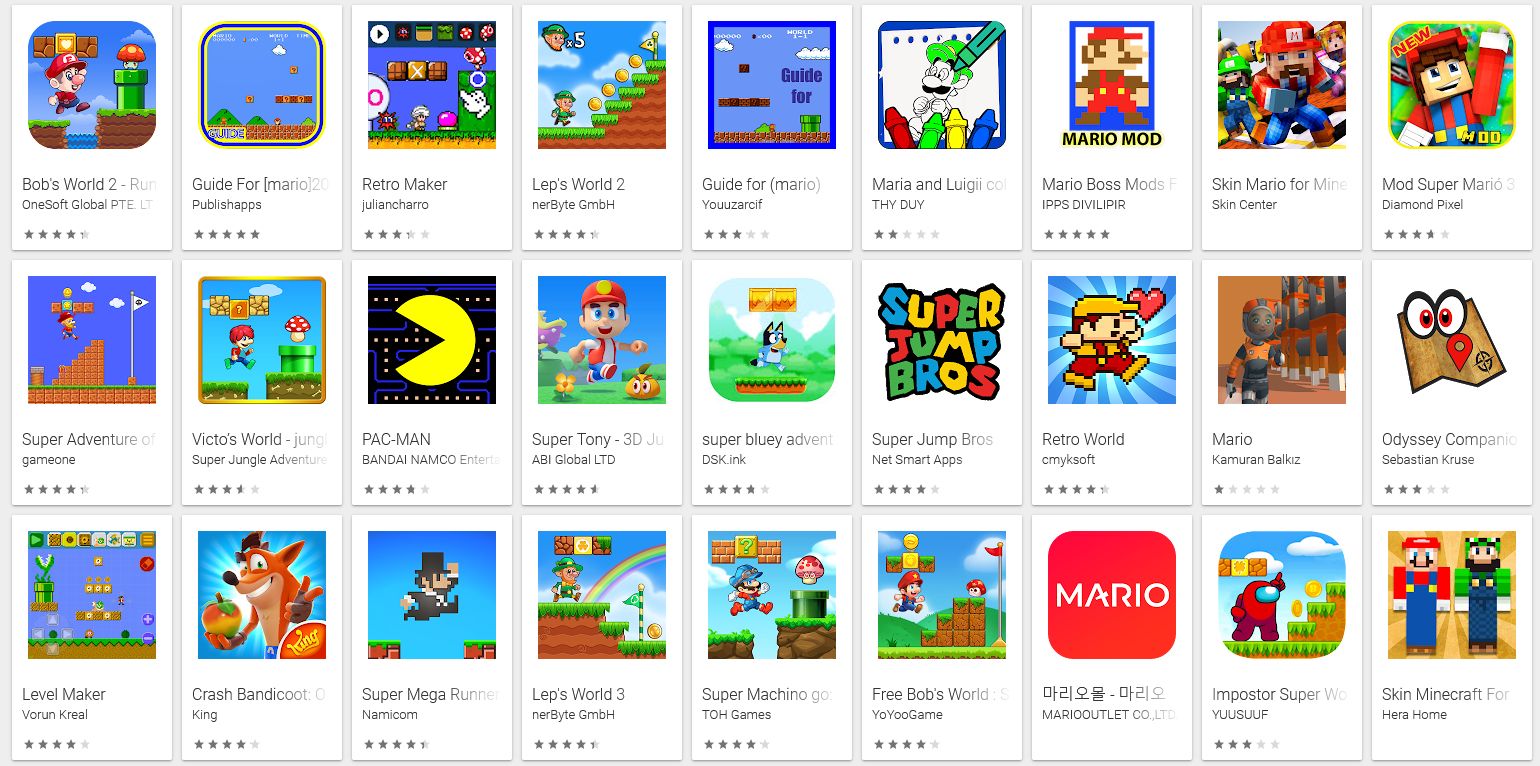Have you ever gone looking for an app on the Google Play Store that you could have sworn was once there, but is now nowhere to be seen? Don't worry, you're not going crazy. Android apps do get pulled from the Play Store for a variety of reasons.
For example, the developer could pull the app down, or Google could remove the app for violating one of its policies. In this article, we're going to cover all the reasons why Android apps get removed from the Google Play Store.
1. The Developer Removes the App
Sometimes, an app disappears from the Play Store simply because the developer themselves took it down. This could be for any number of reasons.
Android is an evolving operating system, and perhaps the developer doesn't have the time or will to keep the app updated. Or maybe the developer has released a new iteration of the app, and has removed the original to avoid confusion.
Or, in the famous case of Flappy Bird, the developer thought the game was too addictive and felt guilty.
In early 2014, the game Flappy Bird took the world by storm. Developer Dong Nguyen was reportedly earning $50,000 a day through in-game advertising. Due to the game's simple mechanics and unexpected difficulty, many people became hooked trying to get the best score.
The attention weighed upon Nguyen, who wasn't sleeping well as a result. He said the game was designed to be played for a few minutes, but it became an "addictive product" and "a problem", and thus Flappy Bird was no more.
2. Abuse of Android Permissions
Every app on your phone needs permission to run, but some require more permission than others. On Android, an app will prompt you when it needs access to something like your camera, microphone, or contacts.
These requests can be legit. For example, Instagram can't capture your videos unless it has access to your camera. A good app should clearly explain why it needs a specific permission and prompt you to enable it.
Some apps aren't so clear. They are designed to harvest data, record audio, initiate phone calls, and other invasive tasks you wouldn't expect from an app. Unfortunately, some malicious developers prey on users who blindly accept these permissions.
As such, Google has removed hundreds of thousands of apps that abuse Android's permissions and ask for too much from the user.
3. Copyright Infringement
Search the Google Play Store for a popular brand like "Mario" and you'd be surprised at how many of the apps aren't from Nintendo. In fact, it's likely that many of these apps infringe a trademark, copyright, or other intellectual right.
In general, these infringements could be imagery and music in the app, gameplay mechanics, or character and brand names.
It's likely that many of these apps are harmless to the user; designed merely to capitalize on the brand recognition. However, companies need to protect their copyright, which is why some apps are removed.
While Google should catch these apps during the submissions process, some slip through. Google recommends that rights holders reach out to the developer first to try to resolve the issue. If that's unsuccessful, Google offers a trademark complaint form.
4. Regulated by the Government
In some cases, the government can get involved and force a developer or Google to pull an app from the Play Store. This varies from country to country—the US government can't pull an app worldwide, for example.
Past examples of this include Austria banning apps for violating its gambling laws, China for its pornography laws, and Kuwait for its privacy laws. Oftentimes the request is legit, but it's unlikely that the developer could fight the case anyway. For smaller developers, it's usually simpler to adhere to the request and pull the app.
If you travel regularly, this does mean you might see different apps depending on where you are. This isn't only because of government regulations, mind. Some apps aren't available worldwide for many reasons. For example, the streaming service Hulu only serves the US, so it makes no sense to offer the app in the UK.
5. Flagged by Google Play Protect
Google Play Protect is a service that tries to protect you against malicious apps on the Google Play Store. Before you download any app, Google Play Protect scans it to check that it isn't harmful.
It also warns you of any apps you have installed that violate Google's Unwanted Software Policy. Examples of such violations include:
- Promises something for which it doesn't deliver on.
- Tries to trick you to install it or is secretly bundled with other apps.
- Collects and transmits your data without your knowledge.
- Isn't upfront about its primary purpose and function.
If Google Play Protect finds a harmful app, it will remove it from the Play Store. In most cases, you'll receive a notification to say the app has been removed automatically from your device; other times, you'll get a warning prompt that you should uninstall the app.
That said, Google Play Protect isn't perfect. While the Google Play Store is generally safe, things do slip through the cracks, so don't rely on the system as your sole source of protection.
Some Apps Aren't Compatible With Your Device
These are some of the main reasons as to why apps vanish from the Google Play Store. With such a vast collection of apps, it's only natural that a portion are removed over time.
Remember, always keep your wits about you, only install apps from trusted developers, and don't be blasé about your Android permissions.
However, there is a difference between apps that have been removed and apps that are incompatible with your device. You may find you can't install some apps because your device isn't powerful enough, you're running an older version of Android, you don't have enough storage space, and so on.


